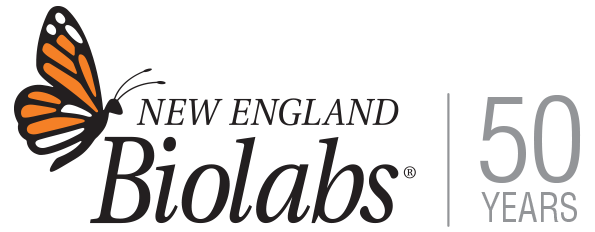Luna® Universal Probe One-Step RT-qPCR Kit Protocol (E3006)
- Prepare RNA of interest using desired RNA extraction and purification methods. Determine concentration by OD260 absorbance.
- Make dilutions of RNA to be used for the standard curve. These should be prepared fresh before each experiment and can be diluted in either water or TE.
Reaction Setup: For best results, we recommend running each RNA standard and sample in triplicate.
| COMPONENT | 20 µl REACTION |
FINAL CONCENTRATION |
| Luna Universal Probe One-Step Reaction Mix (2X) |
10 µl |
1X |
| Luna WarmStart® RT Enzyme Mix (20X) |
1 µl |
1X |
| Forward primer (10 µM) |
0.8 µl |
0.4 µM |
| Reverse primer (10 µM) |
0.8 µl |
0.4 µM |
| Probe (10 µM) |
0.4 µl |
0.2 µM |
| Template RNA |
variable | < 1 µg (total RNA) |
| Nuclease-free Water |
to 20 µl |
- Thaw Luna Universal Probe One-Step Reaction Mix and other reaction components at room temperature, then place on ice. After thawing completely, briefly mix each component by inversion, pipetting or gentle vortexing.
- Determine the total volume for the appropriate number of reactions, plus 10% overage and prepare assay mix of all components except RNA template accordingly. Mix thoroughly but gently by pipetting or vortexing. Collect liquid to the bottom of the tube by brief centrifugation.
- Aliquot assay mix into qPCR tubes or plate. For best results, ensure accurate and consistent pipetting volumes and minimize bubbles.
- Add RNA template to qPCR tubes or plate. Seal tubes with flat, optically transparent caps; seal plates with optically transparent film. Care should be taken to properly seal plate edges and corners to prevent artifacts caused by evaporation.
- Spin tubes or plates briefly to remove bubbles and collect liquid (1 minute at 2,500–3,000 rpm).
- Program real-time instrument with indicated thermocycling protocol (see table below). Ensure a plate read is included at the end of the extension step.
Confirm selection of appropriate detection channel(s) for the fluorophore(s) present in the assay.
For faster results, the “Fast” ramp speed mode can be used where available (e.g., Applied Biosystems StepOnePlus®, QuantStudio®, 7500 Fast instruments).
| CYCLE STEP |
TEMPERATURE |
TIME | CYCLES |
| Reverse Transcription |
55°C* | 10 minutes |
1 |
| Initial Denaturation |
95°C | 1 minute |
1 |
| Denaturation Extension |
95°C 60°C |
10 seconds 30 seconds**(+plate read) |
40-45 |
** For Applied Biosystems real-time instruments use a 60 second extension step.
